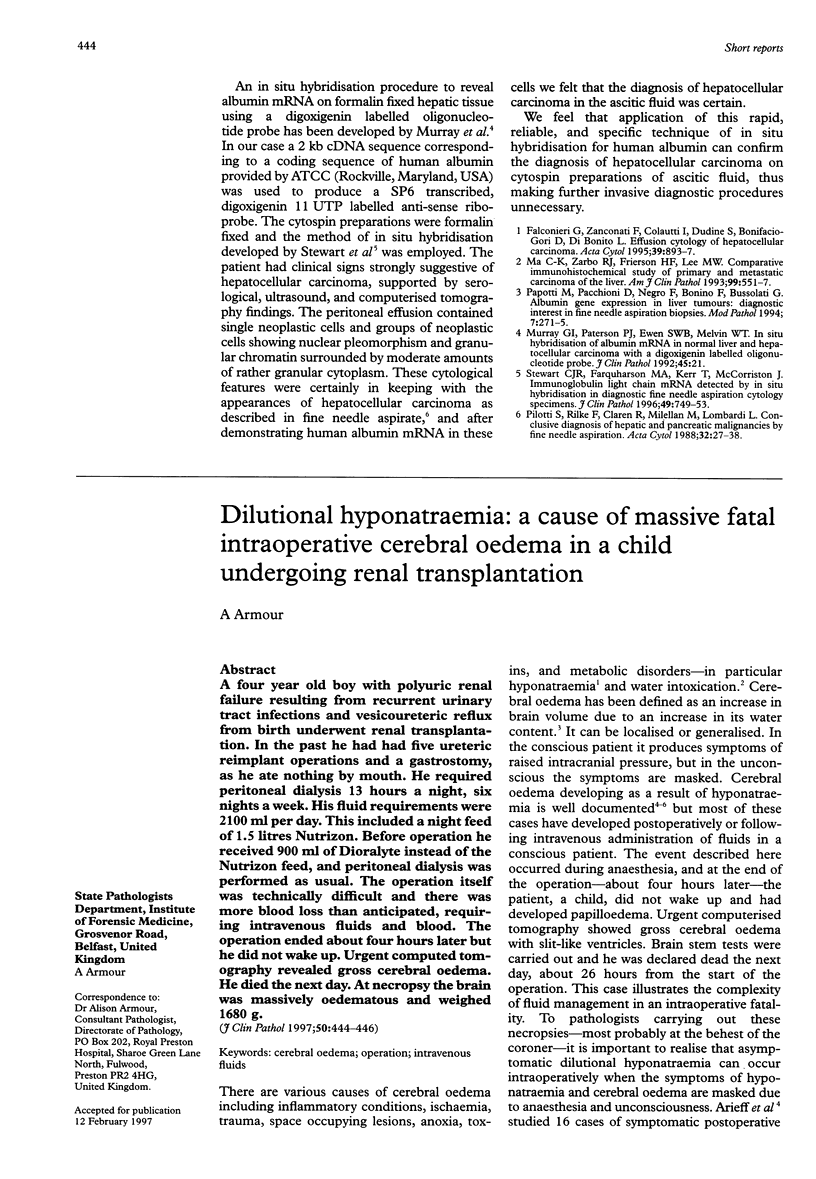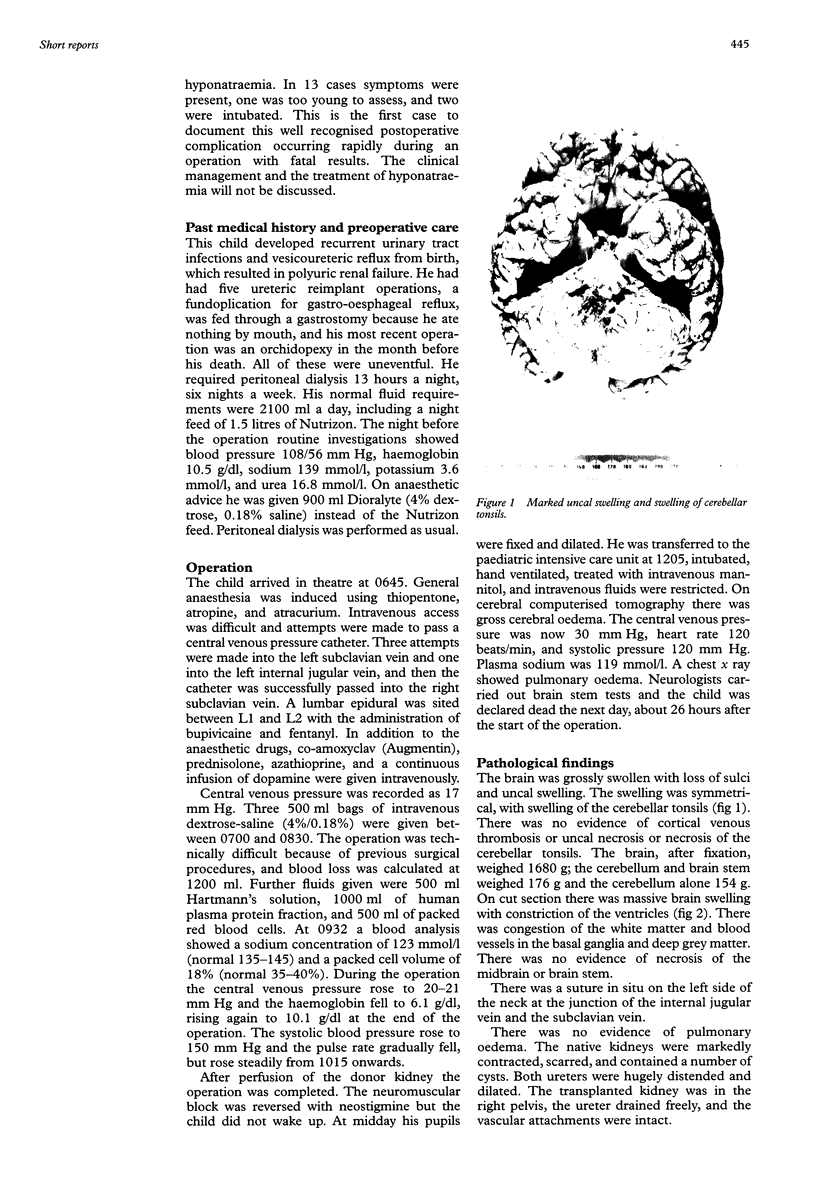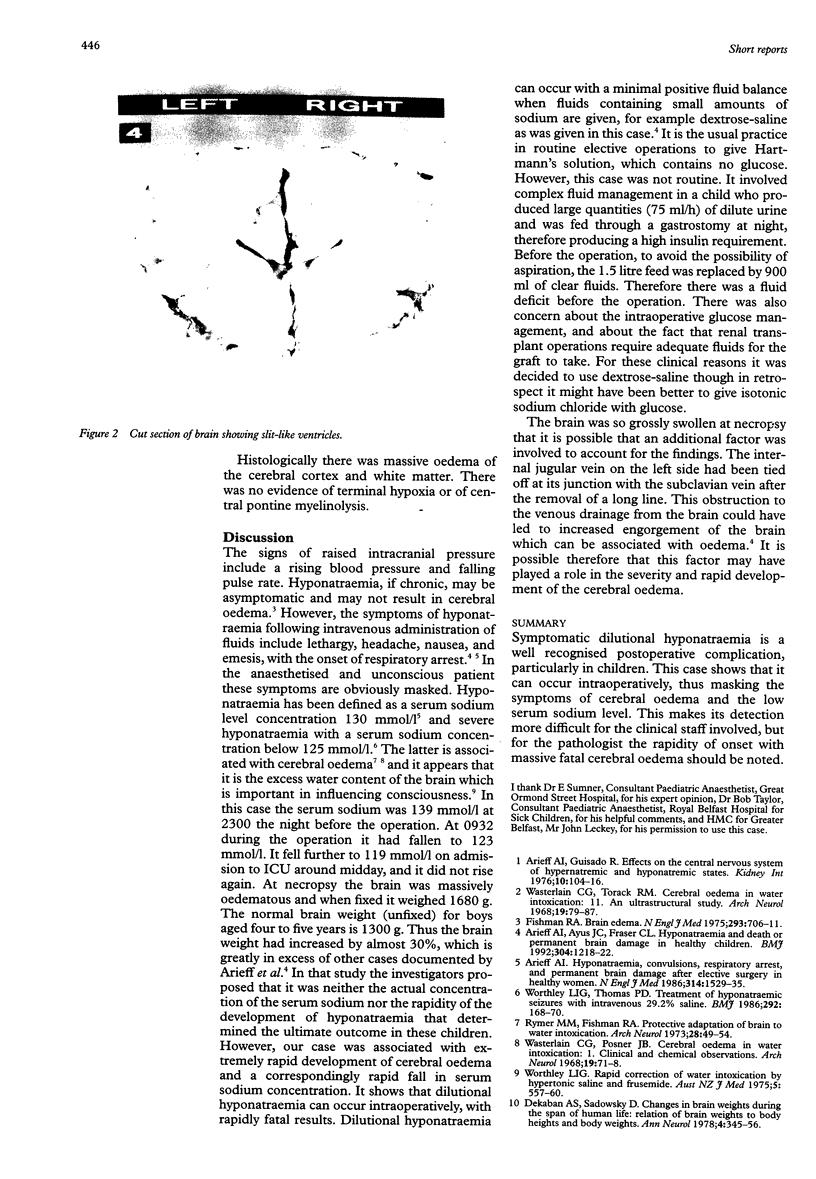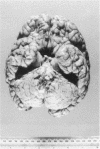Abstract
A four year old boy with polyuric renal failure resulting from recurrent urinary tract infections and vesicoureteric reflux from birth underwent renal transplantation. In the past he had had five ureteric reimplant operations and a gastrostomy, as he ate nothing by mouth. He required peritoneal dialysis 13 hours a night, six nights a week. His fluid requirements were 2100 ml per day. This included a night feed of 1.5 litres Nutrizon. Before operation he received 900 ml of Dioralyte instead of the Nutrizon feed, and peritoneal dialysis was performed as usual. The operation itself was technically difficult and there was more blood loss than anticipated, requiring intravenous fluids and blood. The operation ended about four hours later but he did not wake up. Urgent computed tomography revealed gross cerebral oedema. He died the next day. At necropsy the brain was massively oedematous and weighed 1680 g.
Full text
PDF


Images in this article
Selected References
These references are in PubMed. This may not be the complete list of references from this article.
- Arieff A. I., Ayus J. C., Fraser C. L. Hyponatraemia and death or permanent brain damage in healthy children. BMJ. 1992 May 9;304(6836):1218–1222. doi: 10.1136/bmj.304.6836.1218. [DOI] [PMC free article] [PubMed] [Google Scholar]
- Arieff A. I., Guisado R. Effects on the central nervous system of hypernatremic and hyponatremic states. Kidney Int. 1976 Jul;10(1):104–116. doi: 10.1038/ki.1976.82. [DOI] [PubMed] [Google Scholar]
- Arieff A. I. Hyponatremia, convulsions, respiratory arrest, and permanent brain damage after elective surgery in healthy women. N Engl J Med. 1986 Jun 12;314(24):1529–1535. doi: 10.1056/NEJM198606123142401. [DOI] [PubMed] [Google Scholar]
- Dekaban A. S. Changes in brain weights during the span of human life: relation of brain weights to body heights and body weights. Ann Neurol. 1978 Oct;4(4):345–356. doi: 10.1002/ana.410040410. [DOI] [PubMed] [Google Scholar]
- Fishman R. A. Brain edema. N Engl J Med. 1975 Oct 2;293(14):706–711. doi: 10.1056/NEJM197510022931407. [DOI] [PubMed] [Google Scholar]
- Rymer M. M., Fishman R. A. Protective adaptation of brain to water intoxication. Arch Neurol. 1973 Jan;28(1):49–54. doi: 10.1001/archneur.1973.00490190067009. [DOI] [PubMed] [Google Scholar]
- Wasterlain C. G., Posner J. B. Cerebral edema in water intoxication. I. Clinical and chemical observations. Arch Neurol. 1968 Jul;19(1):71–78. doi: 10.1001/archneur.1968.00480010089007. [DOI] [PubMed] [Google Scholar]
- Wasterlain C. G., Torack R. M. Cerebral edema in water intoxication. II. An ultrastructural study. Arch Neurol. 1968 Jul;19(1):79–87. doi: 10.1001/archneur.1968.00480010097008. [DOI] [PubMed] [Google Scholar]
- Worthley L. I. Rapid correction of water intoxication by hypertonic saline and frusemide. Aust N Z J Med. 1975 Dec;5(6):557–560. doi: 10.1111/j.1445-5994.1975.tb03862.x. [DOI] [PubMed] [Google Scholar]
- Worthley L. I., Thomas P. D. Treatment of hyponatraemic seizures with intravenous 29.2% saline. Br Med J (Clin Res Ed) 1986 Jan 18;292(6514):168–170. doi: 10.1136/bmj.292.6514.168. [DOI] [PMC free article] [PubMed] [Google Scholar]




